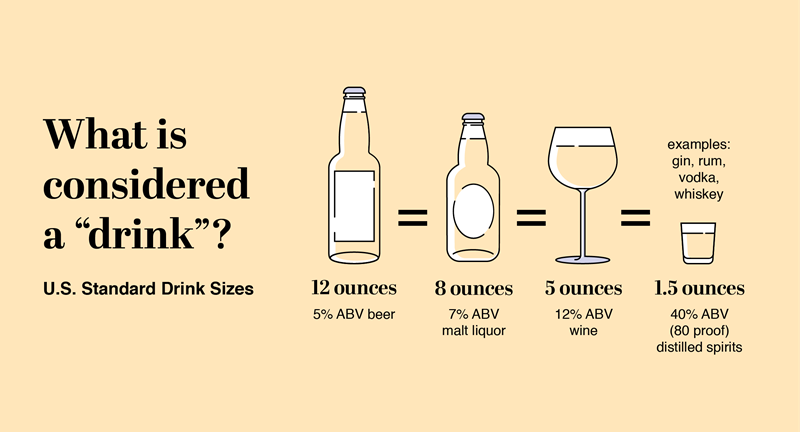Alcohol Report Buried?
Alcohol is a proven carcinogen, awareness is dangerous low, the duty to warn is clear, and burying evidence is not protecting health.
This morning I woke up to headlines about RFK Jr. and the White House burying a report on alcohol and cancer. Sadly, I cannot say I was surprised. The report, initiated under the Biden administration and finalized earlier this year, laid out in clear terms what the science has shown for decades: alcohol use raises the risk of several cancers, including breast, liver, colorectal, and oral cancers. Rather than publishing the findings, the Trump administration may have decided to shelve them with and under Robert F. Kennedy Jr.’s watch at HHS.
I have written many notes about alcohol because it remains one of the most underestimated toxic exposures in daily life. The truth is straightforward. Alcohol is a known carcinogen. Even modest drinking increases risk, and for women the risk per drink is greater than it is for men. Despite this, public awareness remains dismal. Fewer than half of Americans realize that alcohol is linked to cancer, which says as much about gaps in education and labeling as it does about willful avoidance of uncomfortable truths.
The harms also extend well beyond cancer. Developmental and reproductive risks, behavioral impacts, and neurological damage are all part of the toxicology profile. For these reasons, there is a clear duty to warn, through honest labeling, education campaigns, and government transparency. Hiding a major report does the opposite.
If the stated goal is to make America healthy again, then burying evidence about alcohol’s risks is more than just a policy failure. It is a public health betrayal.
Key Takeaways
Alcohol is a proven carcinogen — even small amounts raise cancer risk.
Public awareness is dangerously low — fewer than half of Americans know this.
The duty to warn is clear — honest labeling, education, and transparency are essential.
Burying evidence is not protecting health — it is betraying it.
A Call to Action - Simple
If the goal is truly to make America healthy again, we must demand that public health agencies stop hiding evidence and start telling the truth about alcohol. This requires them to immediately publish crucial findings, like the report on alcohol and cancer that was recently buried, and to uphold their clear duty to warn the public. We must insist on honest labeling that accurately reflects alcohol's status as a proven carcinogen and its risks for various cancers, including breast, liver, colorectal, and oral cancers. Furthermore, public health bodies must initiate comprehensive education campaigns to address the dangerously low public awareness. Fewer than half of Americans realize alcohol is linked to cancer. This commitment to government transparency, accurate communication, and evidence-based education is essential to overcome the manufactured uncertainty created by those who minimize alcohol's well-established risks.
Insidious Messaging - a personal note
What makes this most concerning is that dubious messaging is not confined to those in current leadership positions, but is being advanced by alcohol-enthusiast scientists who hold positions of public trust.
When individuals with scientific credentials publish articles or give talks that minimize or cast doubt on the well established risks of alcohol, they are not engaging in harmless debate. They are creating manufactured uncertainty in the face of clear evidence. The assertion that there are safe or non significant levels of alcohol consumption is inconsistent with the toxicological data and constitutes a reckless disregard for known cancer risks. Is it draconian to include a cancer warning label on alcohol? Seriously, draconian?
In both law and medicine there exists a duty to warn of foreseeable harm. Failure to communicate those risks accurately is not a difference of opinion, it is a breach of that duty. Where such omissions or distortions are deliberate, they approach misrepresentation. Where they are repeated in the face of established evidence, they amount to negligence toward public health.
Those who promote or endorse these narratives appear to be substituting personal or cultural preferences for their obligation to safeguard the public. In doing so they create foreseeable and preventable harm and they should be ashamed.
The public is owed the truth. At the very least, this requires honest labeling, accurate communication, and education grounded in evidence rather than preference. To obscure or distort the established risks of alcohol is not protecting health. It is a betrayal of trust, a failure of duty, and in legal as well as ethical terms it verges on professional malpractice.
Previous notes
My earlier reflections on toxicology as a multidisciplinary profession underscore the need for fuller treatment, something that cannot be contained within the limited space of a tweet, a post, a story, or even a single book. I’d also add that there is good news in that alcohol use among young individuals appears to be decreasing and may be at an all time low.



Brian, thank you for bringing this heinous action to our attention. I've prominently linked to your article in today's update to my Post about alcohol:
https://drmick.substack.com/p/alcohol-whats-the-fuss
What is interesting about your reflections is that, in the field of addiction treatment & recovery, a significant "shift" occurred among its medical and other specialist practitioners that now refer to "harm reduction" instead of abstinence. For a number of reasons that are too lengthy to mention in a comment, I removed myself from this "specialty." I will say, however, it was primarily focused on the fact that I could not appreciate the fact that the consumption of mood-altering substances - particularly when they had demonstrated such destructive force in an individuals life and affected the lives of those who loved them, was not an "essential" behaviour to which I was interested in reducing harm. In any case, with the relatively recent flood of medical data regarding alcohol use & cancer, will they continue to maintain that "harm reduction" does not insist on the traditional abstinence from alcohol. I'm betting they will not risk "offending" patient sensibilities. Very foolish.